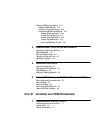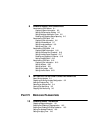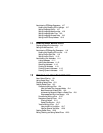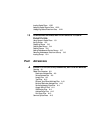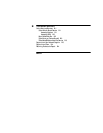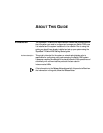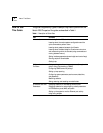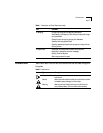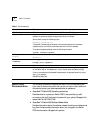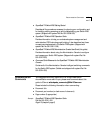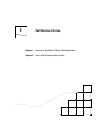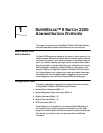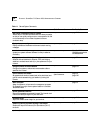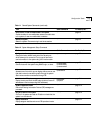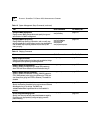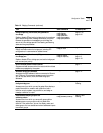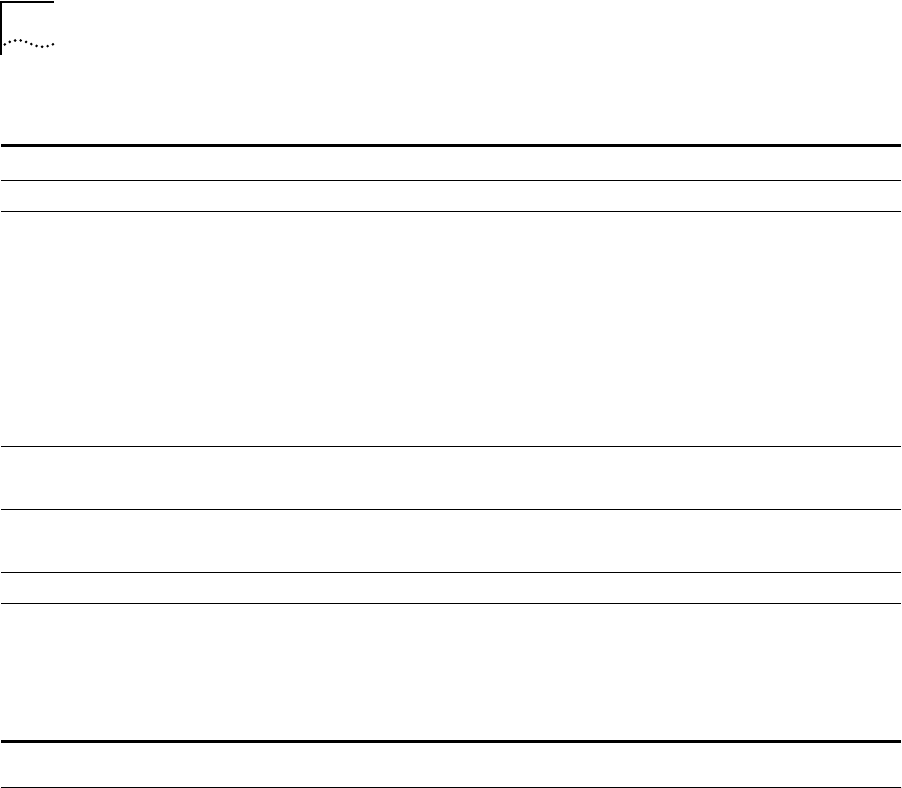
4 ABOUT THIS GUIDE
Switch 2200
Documentation
The following documents comprise the Switch 2200 documentation set.
If you want to order a document that you do not have or order additional
documents, contact your sales representative for assistance.
■ SuperStack™ II Switch 2200 Unpacking Instructions
Describes how to unpack your Switch 2200. It also provides you with
an inventory list of all the items that came with your system. (Shipped with
system/Part No. 801-00312-000)
■ SuperStack™ II Switch 2200 Software Release Notes
Provides information about the software release, including new features and
bug fixes. It also provides information about any changes to the Switch
2200 documentation. (Shipped with system)
Table 3 Text Conventions
Convention Description
“Enter” “Enter” means type something, then press the [Return] or [Enter] key.
“Syntax” vs. “Command” “Syntax” indicates that the general command syntax form is provided. You must
evaluate the syntax and supply the appropriate value; for example:
Set the date by using the following syntax:
mm/DD/yy hh:mm:ss xm
“Command” indicates that all variables in the command syntax form have been
supplied and you can enter the command as shown in text; for example:
To update the system software, enter the following command:
system software Update
Text represented as screen
display
This typeface represents text that appears on your terminal screen; for example:
NetLogin:
Text represented as
commands
This typeface represents commands that you enter; for example:
bridge port stpState
Italic Italic is used to denote emphasis and buttons.
Keys When specific keys are referred to in the text, they are called out by their labels, such
as “the Return key” or “the Escape key,” or they may be shown as [Return] or [Esc].
If two or more keys are to be pressed simultaneously, the keys are linked with a plus
sign (+), for example:
Press [Ctrl]+[Alt]+[Del].



